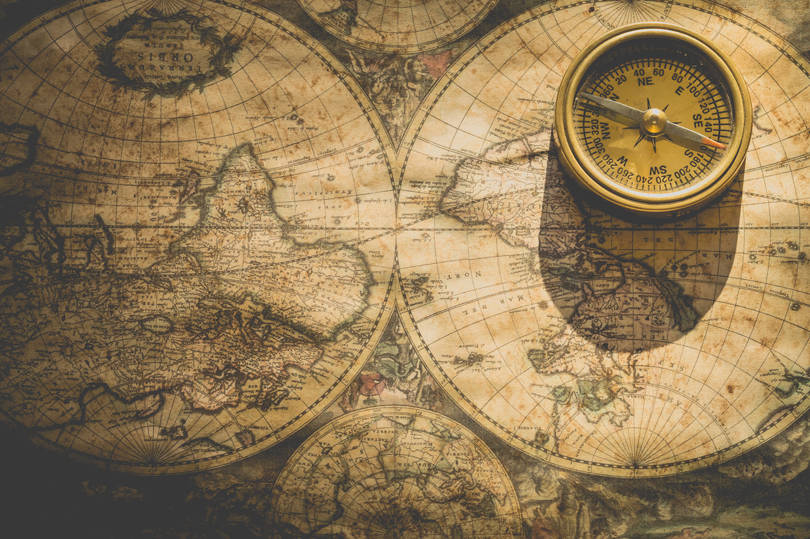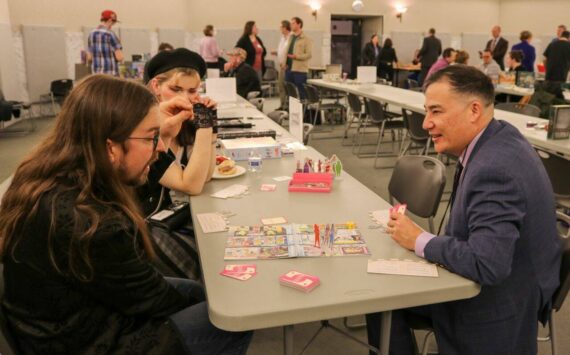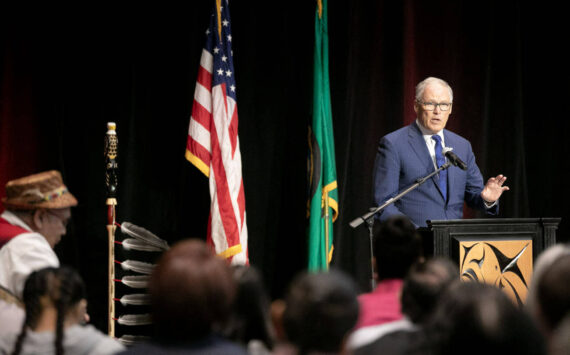By Morf Morford
Tacoma Daily Index
Ever get lost?
What did we do before GPS?
Human beings, for all of human history have traveled from relational space, where people navigated by their relationships to one another, to now, what we might label individual space, where people understand their position on Earth by blue dots pulsating on miniature screens telling us which way to go.
One of my favorite things to do when I visit a city, perhaps for work or a conference, is take a bus or subway, (or human-pulled cart in some places) go as far as I can go, get out and find my way home (however temporary it might be) on foot.
I grew up in the Pacific Northwest. My childhood was a long time ago, and woods were a short walk away.
My parents were in their forties when I was born, so their parenting philosophy (unspoken of course) was very simple; the less trouble I caused them the better.
So as a child, perhaps age eight or ten, I took off on Saturday mornings, coming home for dinner.
Woods, trails and trees were my second home.
I went solo virtually every time.
Looking back of course, this Huck Finn-style childhood seems crazy, dangerous and probably barely legal.
And it probably was all those things; few events in life are less predictable than a venture in the wilderness – no matter how local.
Weather, wild animals, sketchy fellow-humans, falling, getting injured, getting caught in a storm or getting lost are just a few of the unsettling, even lethal, dangers one is likely to run into in the wilderness.
More than once I came home breathless, sopping wet and starving.
Getting lost, if not terrified by some unexpected encounter with nature, only ramped up the experience.
Not all who wander are lost. – JRR Tolkien
As I grew up, cities became my terrain to explore.
Alleys and side-markets held vastly more interesting- and unexpected – topics and experiences than the more polished retail areas.
And, on more than one occasion, as with my childhood experiences, I felt lucky to make it out alive.
As a college student, college towns were great. Swaths of low-rent districts, thrift shops, cheap food, no parents in sight and, by then, a bicycle allowed me to roam far greater distances.
As I left the word of college and entered the world of work, a whole new set of experiences opened up before me.
Other countries, the more foreign the better, offered individualized geo-spatial puzzles I only could have dreamed of.
Most of these were many years ago and I only remember fragments.
One vivid memory is of daybreak in a deserted Mexico City subway station waiting for the first train. Bob Dylan’s Positively 4th Street was on permanent rotation on the crackling sound system.
How I got there, or where I was going is lost to me now. As usual, I was by myself.
Fast-forward a decade or two, I was lost in the city of Beijing, China. I had a map, in Mandarin of course. I couldn’t read the map – or the street signs. Or ask for directions.
At one level, this was pure terror. But at another it was pure lost-boy-in-the-wilderness euphoria with every sense on high alert, but instead of listening to birds for a change of weather, or for the sound of water, or even the slightest sign of civilization, I was listening this time for any hint of what would lead me back to whatever passed for home.
It turns out that I have a fiercely calibrated sense of direction, one that has served me well in wilderness or endless urban landscape.
One time, also in Beijing, I went to an event, a concert I think. I had taken the subway there and had intended to take it back.
After the event, I had somehow gotten turned around and found the subway station just as the last train for the day was pulling out.
From its most distant corner from where I was living, I walked across the entire city, getting in to my apartment at about 2 am.
The compound where I was living, part of a college campus, had a 24-hour guard at the only nighttime entrance.
Since I could not speak Mandarin, and he certainly could not speak English, I just hurried past him and hoped for the best. Fortunately, he was the only one on duty and could not leave his post to chase me. For once, being one of the (extremely) few white faces in the city and on campus worked to my advantage.
Once I got to my building, with 24 hour “watchers”, I had to pound on the door to wake them to open the locked door. As was their policy, they locked the building at 11 pm and it was way past that.
As you might guess, I was the only American in the building.
There was a team of three or four women who “watched” my building from the lobby. Most were irked by my late entry – but one was amused.
At some level “being lost” is in the eye of the beholder. How serious is it, really?
Being lost in the wilderness or in a vast, major foreign city, could cost you your life, but it’s not likely.
It’s far more likely that you’ll find your way home with far more interesting stories to tell than the average tourist.
But there are a few key principles you can learn from getting lost; the first is that, like life in general, what happens to you is far less important than how you respond to it.
Panic will never help you. Blaming anyone won’t help. Excuses are a waste of energy.
Sometimes survival is the only goal. You might have to leave that special purchase behind.
And don’t worry about how you will look, just get back to safety.
Whether it is a pandemic, an economic collapse, a tangled forest or a city you can barely pronounce, your primary, maybe even only, job is to make it through.
You might encounter one-of-a-kind experiences and adventures and, if nothing else discover something you never would have known about yourself.
It’s astounding how little you actually need.
I made my way on foot and improvised rides from Oaxaca, Mexico to Mexico City (about 300 miles). It took me a couple days. No friends along the way. And no food for much of the way. I was about twenty-years old and still imagined myself impervious.
A string of days without a friend, or shelter or provisions of any kind – the only thing I had was the determination to make it home – illuminates what really matters.
I was probably more fragile, more vulnerable and more resolute than at any other time in my life.
I learned then, that what I had always considered necessities, were not.
I could do without food for a day or more, maybe even much more.
Keeping my mind clear and focused is what would, and did, get me home.
As Tolkien implies, there’s a difference between wandering and being lost.
To wander is to step beyond the predictable, the known and where others might expect you to go.
To be lost is to, however temporarily, lose one’s bearings. Recovering those bearings might be beyond the next turn or one’s life work.
It seems to me that most people are stuck, or even adrift, few wander and even fewer have known the release – and terror – of being lost and then re-oriented and reestablished.
Political shenanigans, economic implosions, dire headlines and personal circumstances may seem overwhelming, but even they don’t last forever.
We can make it through. We can prepare, grapple and claw our way through, and together we can learn some central enduring principles that will equip and prepare us for the next unpredictable situation.
I think we as Americans, because of our peculiar history, know better than most, the cost of survival and perseverance.
Challenges make us who we are, and draw out what was always there.
Nothing in life is certain. Not tomorrow, not even that next meal.
There’s an ancient spiritual principle, that when it comes down to the basics, we are all just walking each other home.
As noted in Disney’s “Pooh’s Grand Adventure”: “You’re braver than you believe, stronger than you seem and smarter than you think.”
The other side of being lost, after all, is being found.
The real discovery isn’t far off in the distance or in some mystical place.
Our real strength, wisdom and yes, even decency are waiting to be called upon.
In the craziest of times, the most demanding circumstances require the best of us.
We cannot afford to forget that it has always been there.
______________________
And if you want to see some historic cases of people getting lost, check out this article – https://www.smithsonianmag.com/history/ten-curious-cases-getting-lost-wilderness-180975495/





